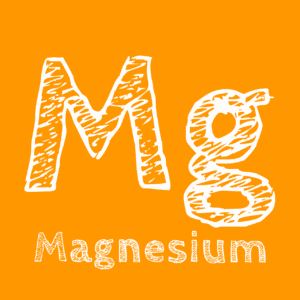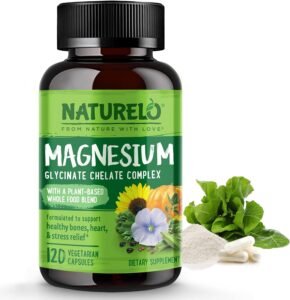Have you ever wondered if you can take vitamin D with magnesium glycinate together? It’s a common question for many health enthusiasts who aim to optimize their nutrient intake. Vitamins and minerals are the building blocks of good health, and understanding how they interact can help you make more informed choices.

Understanding Vitamin D and Its Importance
What is Vitamin D?
Vitamin D, often referred to as the “sunshine vitamin,” is a fat-soluble vitamin essential for numerous bodily functions. Unlike other vitamins, your body can produce it when your skin is exposed to sunlight.
Why Do You Need Vitamin D?
Vitamin D is crucial for maintaining healthy bones and teeth. It also supports your immune system, brain, and nervous system. In addition, it regulates insulin levels, aids diabetes management, and supports lung function and cardiovascular health. Without adequate vitamin D, your body can’t absorb calcium efficiently, leading to bone disorders such as osteoporosis.
Understanding Magnesium Glycinate
What is Magnesium Glycinate?
Magnesium glycinate is a chelated form of magnesium, which means magnesium is bound to glycine, an amino acid. This form is known for its high bioavailability and gentle effect on the stomach, making it a popular choice for those who need to supplement magnesium.
Why Do You Need Magnesium?
Magnesium is involved in over 300 enzymatic reactions in the body, including muscle and nerve function, blood glucose control, and protein synthesis. It’s vital for energy production, DNA synthesis, and maintaining a healthy heart rhythm.
The Synergy Between Vitamin D and Magnesium
How Do They Work Together?
Vitamin D and magnesium work synergistically in your body. Magnesium acts as a cofactor in the conversion of vitamin D into its active form, calcitriol. This activation process is crucial because without it, your body can’t use the vitamin D you consume or produce.
Benefits of Combining Vitamin D with Magnesium Glycinate
Combining these two nutrients can enhance their effectiveness. When taken together, magnesium can improve vitamin D metabolism. This can lead to better calcium absorption and improved bone health. Additionally, this combination may positively impact mood, immune function, and overall energy levels.
Can You Take Vitamin D and Magnesium Glycinate Together?
Safety Considerations
It’s generally safe to take vitamin D and magnesium glycinate together. Both are essential nutrients, and their combined use is often recommended to maximize the benefits of each. However, it’s important to consult your healthcare provider before starting any new supplement regimen to ensure it’s appropriate for your individual health needs.
Potential Interactions
While taking these supplements together is usually safe, be aware of the potential for interactions with other medications you may be taking. For example, magnesium can affect the absorption of certain antibiotics and blood pressure medications. Therefore, separating the timing of these medications can be wise.
Recommended Dosages
The optimal doses of vitamin D and magnesium glycinate can vary based on factors like age, sex, and existing health conditions. Here’s a general guideline:
| Nutrient | Recommended Daily Amount | Tolerable Upper Intake Level (for adults) |
|---|---|---|
| Vitamin D | 600-800 IU | 4,000 IU |
| Magnesium Glycinate | 310-420 mg | 350 mg (from supplements alone) |

How to Incorporate Vitamin D and Magnesium Glycinate Into Your Routine
Morning vs. Evening
Some believe that vitamin D should be taken in the morning to mimic natural sunlight exposure, while magnesium supplements are often taken in the evening for their calming effects. However, the most important factor is consistency. Choose a time that fits your schedule and stick to it.
With or Without Food?
Vitamin D is fat-soluble, so taking it with a meal that contains fat can improve absorption. Magnesium glycinate, on the other hand, can be taken with or without food, although taking it with a meal may reduce stomach upset.
Practical Tips
- Use pill organizers to keep your supplements organized.
- Set reminders on your phone to ensure you take them at the same time each day.
- Keep a journal to track how you feel and any changes in your health.
Common Questions and Misconceptions
Can Too Much of Either Be Harmful?
Yes, excessive intake of both vitamin D and magnesium can be harmful. High doses of vitamin D can lead to hypercalcemia, a condition where the calcium levels in your blood are too high. Excessive magnesium, especially from supplements, can cause diarrhea, nausea, and abdominal cramping.
Is Natural Food Better?
While you can get both nutrients from food sources, supplements may be necessary for some individuals. Foods rich in vitamin D include fatty fish, fortified dairy products, and egg yolks. Magnesium-rich foods include spinach, nuts, seeds, and whole grains. However, it can be challenging to meet your daily needs through diet alone.
Do I Need Both?
Both nutrients are essential, and deficiencies can lead to a host of health problems. If your diet lacks these nutrients or if you have a condition that hinders nutrient absorption, supplementation might be necessary.
Conclusion
Balancing your vitamin and mineral intake is a pivotal aspect of maintaining good health. Taking vitamin D with magnesium glycinate can be a beneficial combination for many, aiding in the effective use of these essential nutrients within your body. However, it’s important to consult a healthcare provider for personalized advice based on your unique health needs. Being proactive and informed in your approach to supplementation can lead to better health outcomes and an improved quality of life.




